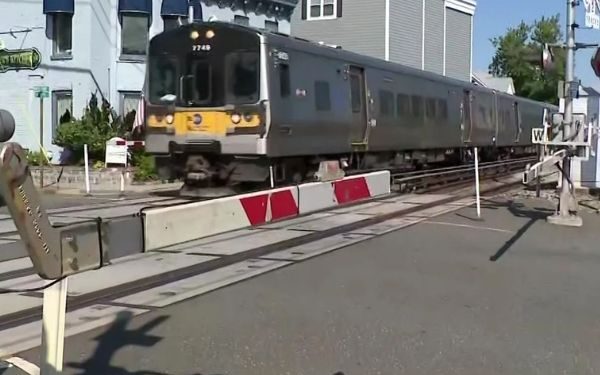Three of the five Long Island Rail Road unions have voted to authorize a strike if contract talks fail, putting 270,000 daily riders on edge just weeks before the Ryder Cup at Bethpage State Park. A walkout could begin as early as Sept. 18.
Ryder Cup Impact
This Article Includes
The Ryder Cup, expected to draw a quarter million golf fans, relies heavily on the LIRR to transport nearly half of attendees. LIRR President Rob Free said the railroad still plans to provide service for the tournament:
“Our plan is to provide service for the Ryder Cup. That’s what our plan is. We’re adding trains. We’re adding stops.”
Free urged unions to return to the table, while a union spokesman countered that the event won’t be affected “if you settle the contract.”
Businesses Brace for Trouble
Local businesses banking on the Ryder Cup are worried. Croxley’s Ale House rebranded as the Ryder Cup Clubhouse, but owners fear a strike could derail their investment.
“We’re definitely concerned. If that goes down and people can’t travel, it’s going to affect not only our business, but the entire block,” co-owner Joe Rodriguez said.
Parking is already limited, raising concerns that an influx of drivers could overwhelm nearby communities.
“Add 50,000 more just for fun, it’s definitely going to create chaos,” said Daron Benbenisti, owner of Chiddy’s Cheesesteaks.
What’s at Stake
-
3,700 rail workers could strike if no deal is reached.
-
Unions are asking for a 16% raise over three years.
-
The MTA has offered 9.5%, arguing LIRR workers are already the highest paid in the nation.
-
The Brotherhood of Railroad Signalmen says the current deal would amount to a pay cut due to inflation.
The Brotherhood of Locomotive Engineers and Trainmen, one of the largest unions, will release its strike authorization results Monday.
Riders Preparing for the Worst
Commuters are already exploring alternatives:
-
Some say they won’t be able to get to work without the train.
-
Others are budgeting for higher costs from gas, tolls, and parking.
-
A few sympathize with the workers, citing the rising cost of living.
The last LIRR strike in 1994 lasted just two days before the MTA conceded to union demands.
This article has been carefully fact-checked by our editorial team to ensure accuracy and eliminate any misleading information. We are committed to maintaining the highest standards of integrity in our content.









